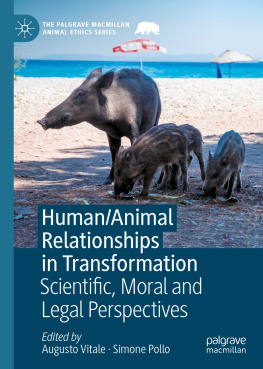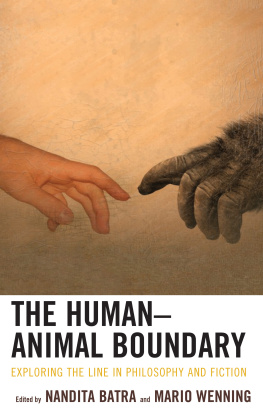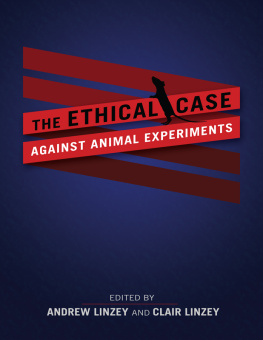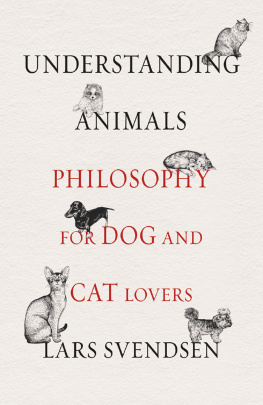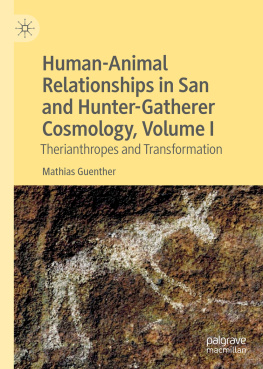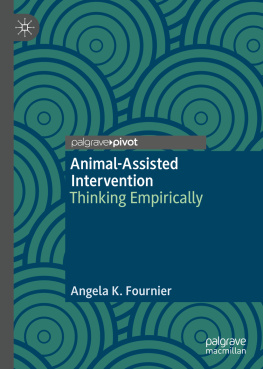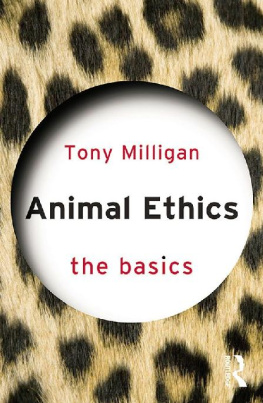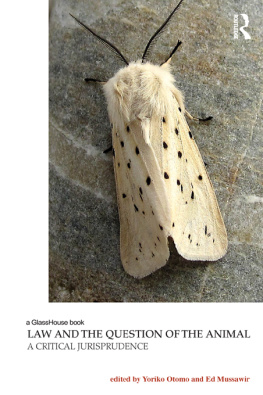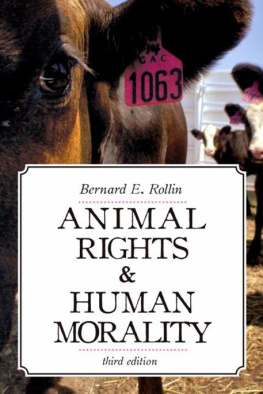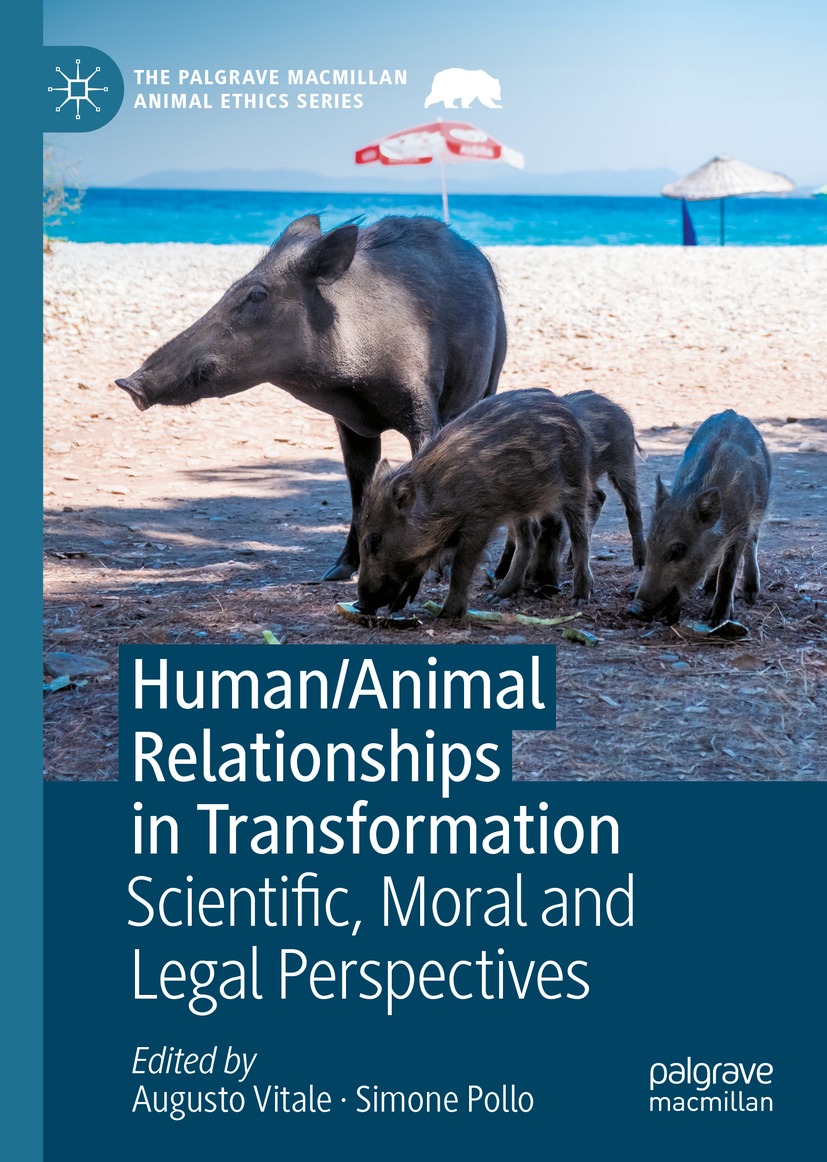The Palgrave Macmillan Animal Ethics Series
Series Editors
Andrew Linzey
Oxford Centre for Animal Ethics, Oxford, UK
Clair Linzey
Oxford Centre for Animal Ethics, Oxford, UK
In recent years, there has been a growing interest in the ethics of our treatment of animals. Philosophers have led the way, and now a range of other scholars have followed from historians to social scientists. From being a marginal issue, animals have become an emerging issue in ethics and in multidisciplinary inquiry. This series will explore the challenges that Animal Ethics poses, both conceptually and practically, to traditional understandings of human-animal relations. Specifically, the Series will:
provide a range of key introductory and advanced texts that map out ethical positions on animals;
publish pioneering work written by new, as well as accomplished, scholars;
produce texts from a variety of disciplines that are multidisciplinary in character or have multidisciplinary relevance.
For further information or to submit a proposal for consideration, please contact Amy Invernizzi, amy.invernizzi@palgrave-usa.com.
More information about this series at http://www.palgrave.com/gp/series/14421
Editors
Augusto Vitale and Simone Pollo
Human/Animal Relationships in Transformation
Scientific, Moral and Legal Perspectives

Logo of the publisher
Editors
Augusto Vitale
Center for Behavioural Sciences and Mental Health, Istituto Superiore di Sanit, Rome, Italy
Simone Pollo
Department of Philosophy, Sapienza Universit di Roma, Rome, Italy
ISSN 2634-6672 e-ISSN 2634-6680
The Palgrave Macmillan Animal Ethics Series
ISBN 978-3-030-85276-4 e-ISBN 978-3-030-85277-1
https://doi.org/10.1007/978-3-030-85277-1
The Editor(s) (if applicable) and The Author(s), under exclusive license to Springer Nature Switzerland AG 2022
This work is subject to copyright. All rights are solely and exclusively licensed by the Publisher, whether the whole or part of the material is concerned, specifically the rights of translation, reprinting, reuse of illustrations, recitation, broadcasting, reproduction on microfilms or in any other physical way, and transmission or information storage and retrieval, electronic adaptation, computer software, or by similar or dissimilar methodology now known or hereafter developed.
The use of general descriptive names, registered names, trademarks, service marks, etc. in this publication does not imply, even in the absence of a specific statement, that such names are exempt from the relevant protective laws and regulations and therefore free for general use.
The publisher, the authors and the editors are safe to assume that the advice and information in this book are believed to be true and accurate at the date of publication. Neither the publisher nor the authors or the editors give a warranty, expressed or implied, with respect to the material contained herein or for any errors or omissions that may have been made. The publisher remains neutral with regard to jurisdictional claims in published maps and institutional affiliations.
Cover illustration: Maram_shutterstock.com
This Palgrave Macmillan imprint is published by the registered company Springer Nature Switzerland AG
The registered company address is: Gewerbestrasse 11, 6330 Cham, Switzerland
Preface
Ethics of Human/Animal Relationships is a growing field of academic research and a topic for public discussion and regulatory interventions from law-makers, government and private institutions (such as scientific societies and farming industries). In our societies human/animal relationships are in transformation and understanding the nature of this process is crucial for all those who believe that the enlargement of moral and legal recognition to non-human animals is part of contemporary civilization and moral/political progress. Understanding the nature of this process means analysing and critically discussing the philosophical/scientific/legal concepts and arguments embedded in it. This book aims at contributing to such analysis by means of collecting ideas and reflections from leading experts in the fields from different disciplinary approaches and theoretical/scientific perspectives. Scopes of this book are both depicting the state of the art of the transformation of Human/Animal Relationships and presenting ideas to foster this process. In pursuing those aims the approach of this book is plural in a double meaning. First, contributors are plural in their backgrounds and expertise in order to provide a rich interpretation of the questions at stake. Second, plurality regards the subject matter of the various analyses: Human/Animal Relationships (and transformations affecting them) are not a monolith. Animal species are many and different and human interactions with them are equally many and different. The various contributions to the book move from the awareness of the great variety of human/animal relationships in order to foster the theoretical debate and the public discussion about the scientific and ethical reasons underlying the changes in our approaches to animals, a fact that nowadays irreversibly characterizes our societies.
Augusto Vitale
Simone Pollo
Rome, Italy
Series Editors Preface
This is a new book series for a new field of inquiry: Animal Ethics.
In recent years, there has been a growing interest in the ethics of our treatment of animals. Philosophers have led the way, and now a range of other scholars have followed, from historians to social scientists. From being a marginal issue, animals have become an emerging issue in ethics and in multidisciplinary inquiry.
In addition, a rethink of the status of animals has been fuelled by a range of scientific investigations which have revealed the complexity of animal sentiency, cognition and awareness. The ethical implications of this new knowledge have yet to be properly evaluated, but it is becoming clear that the old view that animals are mere things, tools, machines or commodities cannot be sustained ethically.
But it is not only philosophy and science that are putting animals on the agenda. Increasingly, in Europe and the United States, animals are becoming a political issue as political parties vie for the green and animal vote. In turn, political scientists are beginning to look again at the history of political thought in relation to animals, and historians are beginning to revisit the political history of animal protection.
As animals grow as an issue of importance, so there have been more collaborative academic ventures leading to conference volumes, special journal issues, indeed new academic animal journals as well. Moreover, we have witnessed the growth of academic courses, as well as university posts, in Animal Ethics, Animal Welfare, Animal Rights, Animal Law, Animals and Philosophy, Human-Animal Studies, Critical Animal Studies, Animals and Society, Animals in Literature, Animals and Religiontangible signs that a new academic discipline is emerging.

